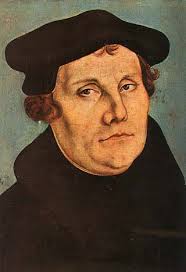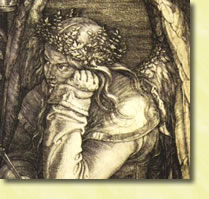The following appeared in Trinity School for Ministry’s Seed & Harvest Spring/Summer 2020.

Why renewal? Because the Christian church has been around for over 2,000 years, renewal becomes necessary as each generation must once again claim the faith for itself, but also must address the changes and challenges of a surrounding culture that may or may not be sympathetic to the Christian gospel. As the upcoming generation encounters the challenges of its own culture, it has to be faithful not only to what has come before, but also to address new challenges in new ways.
A renewal movement took place in the Episcopal Church in the 1970’s that had its roots in the charismatic movement that began in the 1960’s, characterized by the experience in mainline Protestant denominations of charismatic gifts that earlier had been characteristic of Pentecostalism. The renewal emphasized an experience of the presence of the Holy Spirit in worship that had been lacking in mainline denominations.
This renewal movement has continued to have an influence on the contemporary church. Many later church leaders got their starts or came to faith then. Charismatic renewal had a significant effect on styles of (contemporary) worship music. Within Anglican and Episcopal circles, charismatics are regularly included as one of the “three streams” of conservative Anglicanism identified as not only Evangelical and Catholic, but now also Charismatic.
While this renewal movement of the 1970s played a significant role in bringing revitalization within the mainline churches, it was only one of several renewal movements of the previous century. In what follows, I will mention three other renewal movements, and how they led me to become an Anglican.
Contemporaneous with charismatic renewal was the rise of “Evangelicalism” (as distinct from Fundamentalism) in denominations that were predominantly baptistic or revivalist, – “born again” Christianity. Evangelicalism likely reached its cultural high point when Newsweek recognized the election of Jimmy Carter as President by designating 1975 as the “Year of the Evangelicals.”
During my high school and college undergraduate years, my family were members of an Evangelical megachurch with a large youth group that became the center of my social circle. While other teenagers went to prom or played high school sports, I spent my time with my church friends. It was through this youth group that I became convinced that I had a vocation to some kind of Christian ministry, and I ended up doing my undergraduate studies at a local Evangelical liberal arts college. My Evangelical upbringing gave me a spirituality that focused on a “personal relationship” with Jesus Christ, a knowledge of and love for the Bible, and a way of responding to certain types of worship. Hymns like ‟Amazing Grace” still move me in ways that are hardly rational.
A second renewal movement took place during the twentieth century in the area of academic theology. (more…)








